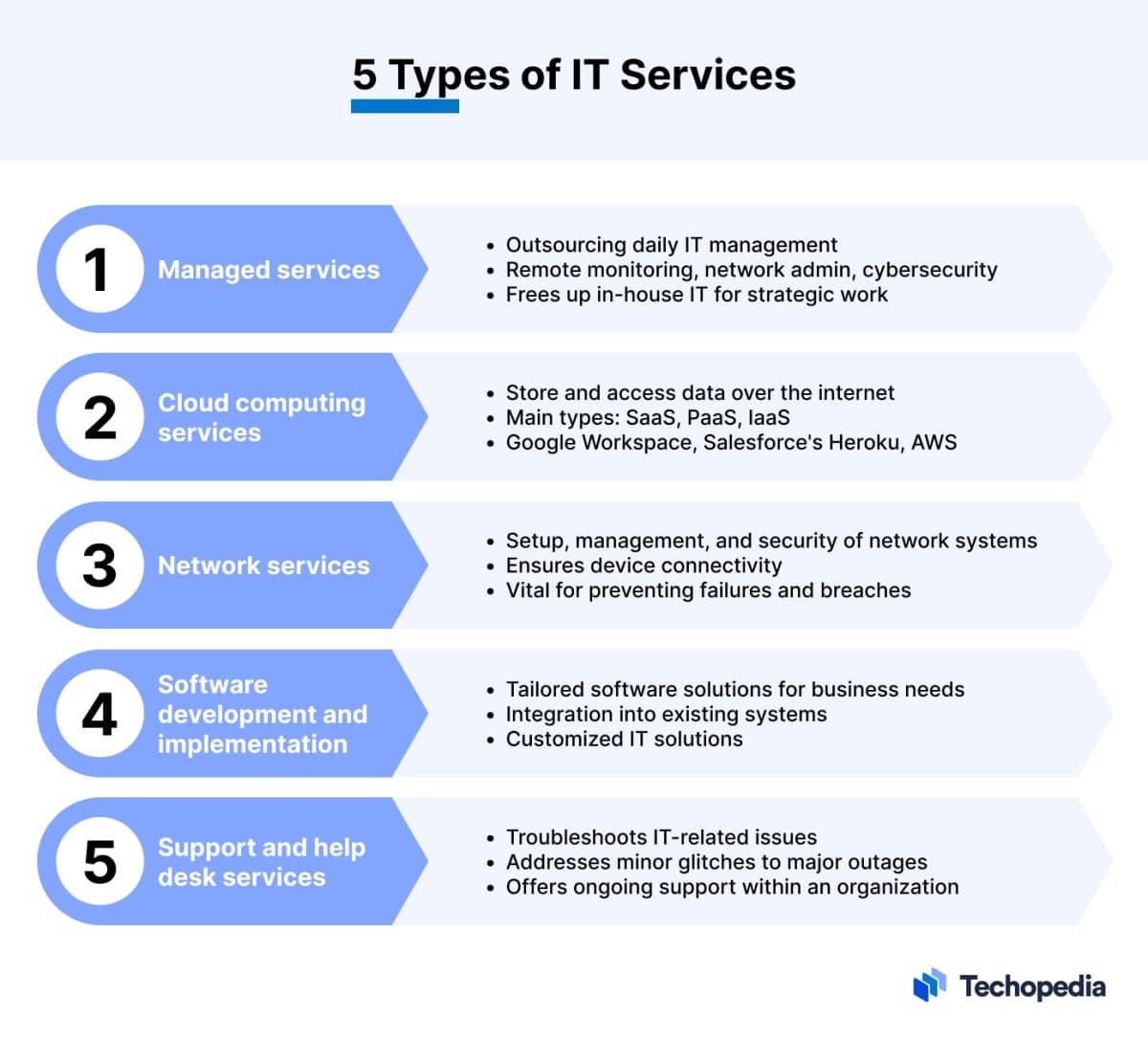Within the current rapidly changing online environment, tiny businesses encounter many challenges which may impede their growth and success. ranging from overseeing daily tasks to staying updated on tech innovations, the burden to stay competitive can be daunting. Fortunately, integrating outsourced IT services provides a route to alleviate such burdens while improving operational effectiveness and productivity.
Outsourced IT solutions offer customized services designed to meet the unique requirements of small businesses. Through delegating IT oversight to professionals, businesses can concentrate on their core operations while enjoying the benefits of advanced technology and assistance. This strategic method not only aids in streamlining processes but also empowers businesses to respond swiftly to customer needs, thereby positioning them for long-term excellence.
The Significance of Outsourced IT Services
In the current digital landscape, small businesses face the challenge of staying current with swiftly evolving technology. Outsourced IT services offer a holistic solution that allows these businesses to leverage advanced technology without the responsibility of overseeing it themselves. By transferring IT responsibilities, small businesses can concentrate on their core operations while guaranteeing that their technology infrastructure is reliable, safe, and effective.
Managed IT services provide skills that may not be possible for small businesses to have in-house. With the support of a team of IT specialists, businesses can enjoy proactive monitoring, cybersecurity measures, and aid for troubleshooting. This level of service not only reduces downtime but also lessens risks associated with data breaches and cyber threats — two issues that can negatively influence small business operations if not properly handled.
In addition, professional IT services offer scalability, allowing small businesses to grow without the limitation of improving their technology infrastructure independently. As a business expands, its IT needs change, and outsourced IT services can effortlessly adapt to these changing requirements. This adaptability ensures that small businesses remain competitive and are able to take advantage of new opportunities as they arise.
Perks of Outsourcing IT for Small Businesses
Delegating IT support can greatly improve productivity for little businesses. By utilizing specialized providers, companies can obtain the latest technology and software systems without the large costs linked to maintaining in-house IT teams. This allows mini businesses to concentrate their assets and attention on core operations, eventually propelling expansion and innovation. With dependable IT support, they can minimize downtime and quickly resolve technical issues, guaranteeing that their operations run smoothly and seamlessly.

A key advantage is financial management. Employing it services -time IT staff can be a large expense for mini businesses, particularly when accounting for salaries, benefits, and continuing training. Delegating IT support provides a more consistent cost structure, enabling businesses to budget more efficiently. In most cases, they just pay for the support they need when they need them, which can lead to considerable cost reductions over time. This financial flexibility allows mini businesses to allocate funds toward additional critical areas such as advertising or product development.
Moreover, delegating IT provides access to a broad range of expertise and advanced tools that may not be practical to maintain internally. IT providers often have teams of experts with diverse skills and expertise, which means small businesses can benefit from the most recent cybersecurity strategies, cloud services, and tech innovations. This diverse expertise can help businesses stay competitive in a rapidly changing market, guaranteeing they can adapt to new obstacles and opportunities with ease.
Selecting the Appropriate IT Provider
Selecting the right IT partner is essential for micro businesses looking to utilize managed IT services successfully. Start by assessing your business requirements and the particular challenges you encounter. If it’s enhancing security, streamlining operations, or boosting customer support, knowing your requirements will aid you locate a partner that aligns with your aspirations. Spend time to research potential partners and assess their expertise and track record in your field.
Once you compile a selection of potential IT providers, examine their service options and support models. A good partner should offer a broad range of services, which include network management, data backup, and IT consulting. Furthermore, their support approach should be unambiguous and straightforward. Knowing how they address issues, the speed of their response, and the readiness of their support team is vital for ensuring business continuity.
Lastly, do not overlook the importance of trust and dialogue. An optimal IT provider will prioritize building a strong relationship with your business, providing regular updates and being reactive to your concerns. Search for references and client reviews to gauge their credibility and dependability. Building a alliance based on shared understanding and clarity can substantially enhance your micro business's overall effectiveness.
